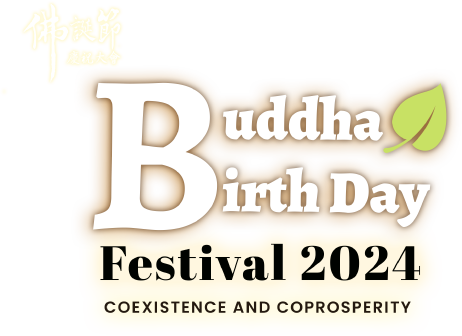
03 MAY - 05 MAY
Chung Tian Temple
1034 Underwood Rd, Priestdale QLD 4127
Home
The Ten Practices
Over 2,500 years ago, the Buddha attained enlightenment under the Bodhi tree. It was in this moment, the Buddha realised that all sentient beings have the capacity to reach a state of enlightenment in this lifetime. Through continual practice of our thoughts, speech and actions, we are able to achieve profound wisdom, combined with infinite compassion.
The present-day Venerable Master Hsing Yun spent his life propagating "Humanistic Buddhism", which is the integration of Buddhist practice into all aspects of daily life, placing significant importance on daily life as a spiritual practice. The goal of Humanistic Buddhism is for individuals to lead a life of practice in order to help all sentient beings attain enlightenment, benefit society and transform our world into one of peace.
In order to implement the theme of "Wisdom and Innovation", the 2024 Buddha Birth Day Festival will embed Buddhist practice into our modern lives through the “Ten Practices”, a series of activities to find peace and unlock our inner treasures.
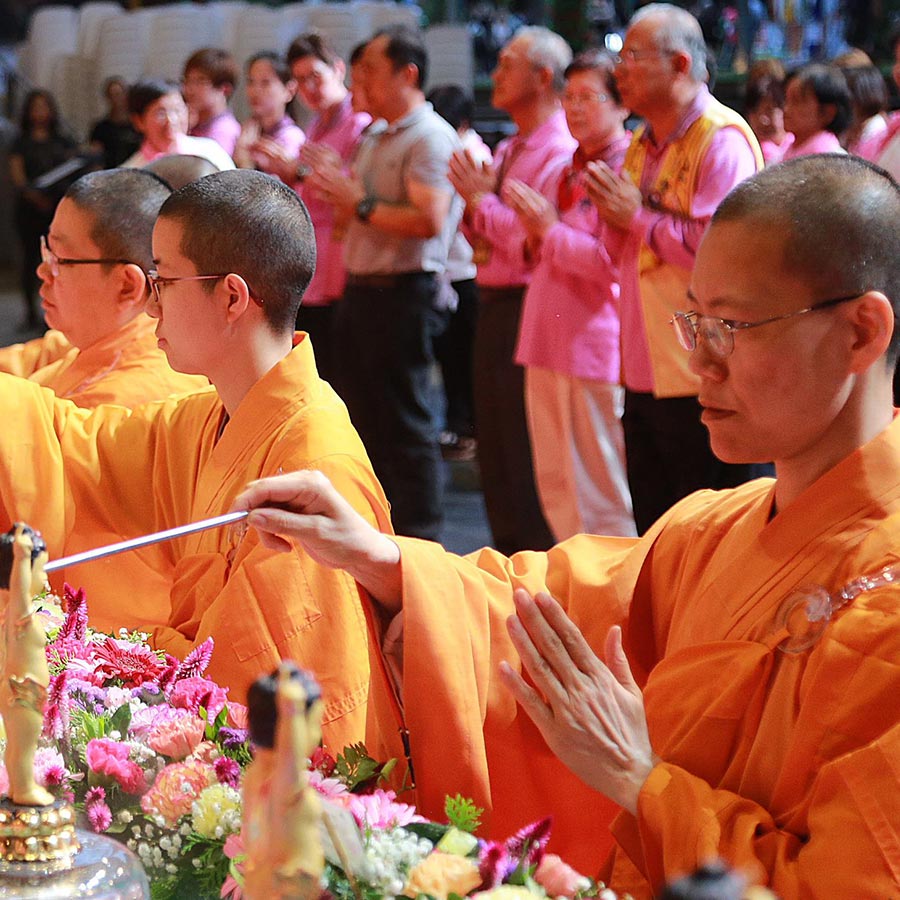
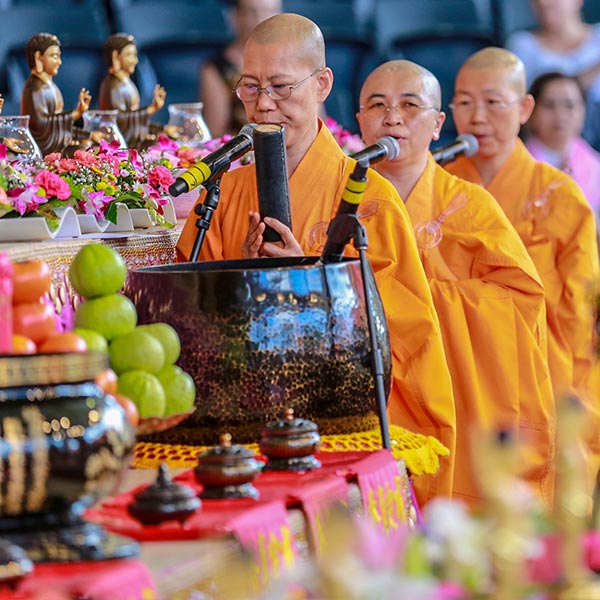
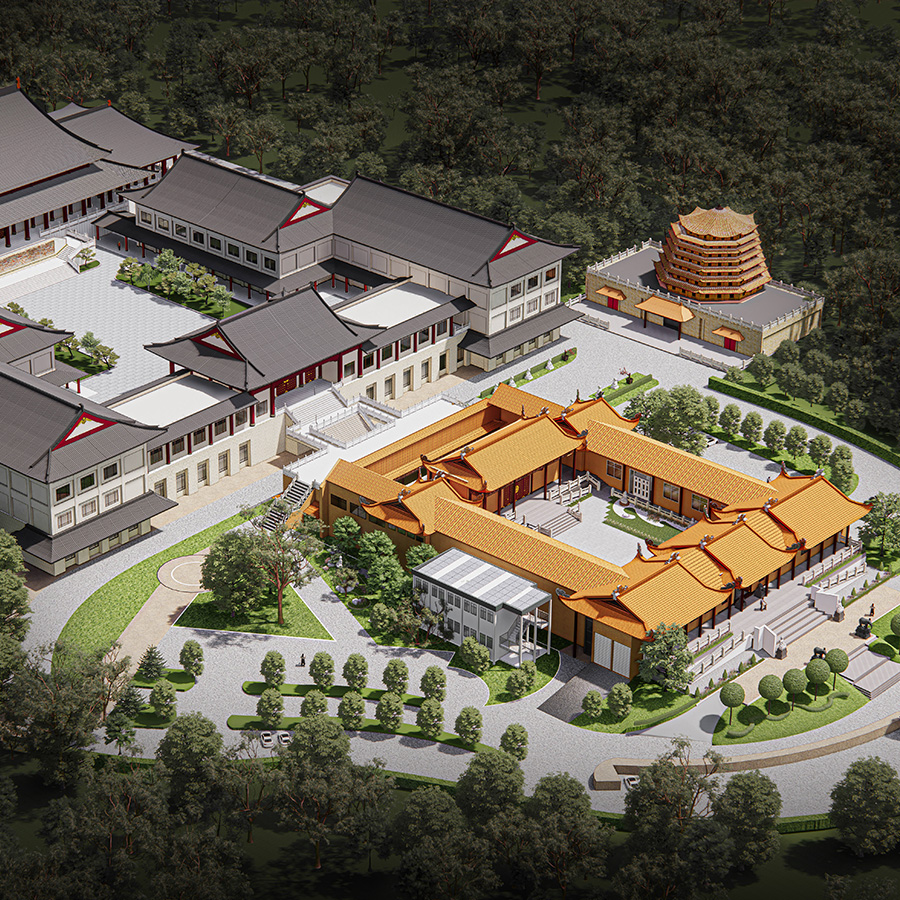
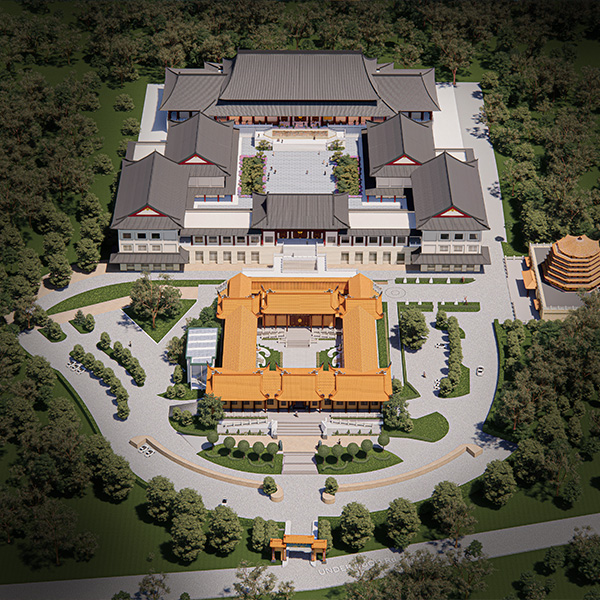
1. RESPECT
Buddhists often join their palms together as a silent form of greeting and acknowledgement. As it is courteous to greet others, the joining of palms is a sign of friendliness, care, kindness and respect between people.
Venerable Master Hsing Yun once said that Buddhism places the greatest emphasis on the cultivation of respect as it forms the foundation of peace. Buddhism advocates respect and tolerance for all races, genders, religions and cultures.
Visit the Tathagata Hall and pay respect to the Buddha as our spiritual teacher. Find the festival map here.
2. BATHING THE BUDDHA
The Bathing of the Buddha symbolises the cleansing of our body, speech and mind. The universal message is that, “it is easy to wash away physical dirt, but much more difficult to cleanse one’s inner impurity of greed, anger and ignorance.”
Bathe the Buddha at this year’s festival and connect with your inner Buddha.


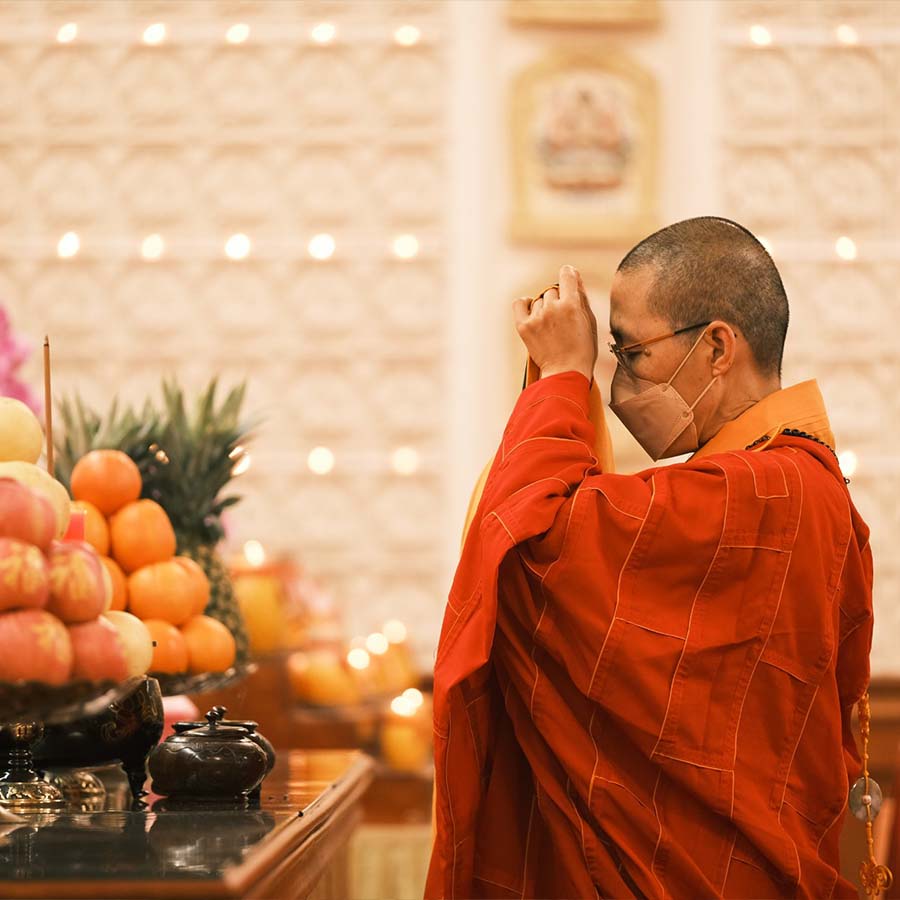
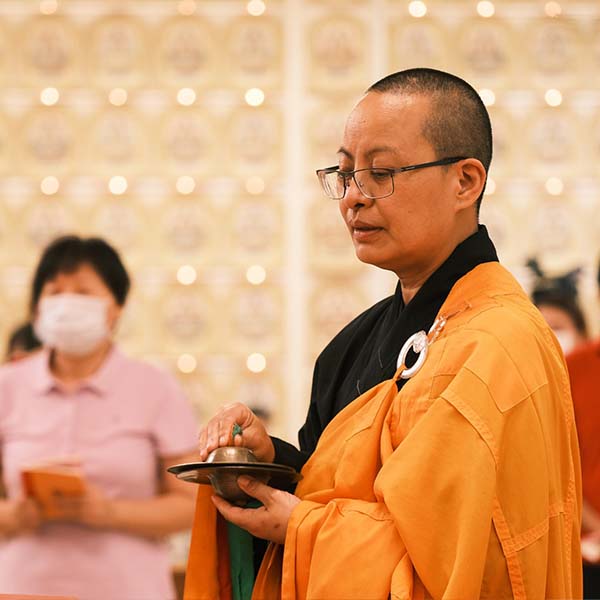
3. DEVELOP AFFINITIES
The Buddha taught us that nothing exists independently and that we are in a natural and constant state of interdependence with all beings, and all things. For all beings to coexist peacefully, Buddhism places great importance on developing positive affinities with each other through kindness and compassion.
One of the ways to develop positivity affinity is by offering light to others. The offering of light extinguishes darkness and represents the wisdom that we have within ourselves in order to create positive affinity with others and offer our light to benefit the world.
Join one of our light offering ceremonies and shine your light on the world.
4. RIGHT MINDFULNESS
Buddhism advocates the cultivation of the mind. One such way is through sutra calligraphy. The act of hand-copying scriptures is not only considered a form of meditation but it also yields merits to the scriber, assists in cleansing the mind through exercising concentration, deepens the writer’s understanding of the Buddha’s teachings, and has become an art form in its own right known as calligraphy.
Stop by the Pagoda – Ksitigarbha Hall to experience the practice of sutra transcription.




5. PRACTICE
Buddhism offers a variety of practices to cultivate oneself. Some of the main forms of practice for Buddhists include:
Meditation - The practice of meditation allows us to consciously learn to live in the present moment and experience peace in each breath.
Tea Meditation - This is considered another form of meditative practice as each step of the tea making process is an opportunity to practice mindfulness.
Dharma Ceremonies - This practice is used to chant sutras in unison, to solidify our understanding of the Buddha’s teachings, to embrace the power of communal service and to promote friendship between people.
View our full program to find a meditation, tea meditation or ceremony to join.
6. RIGHT VIEW
"Right view" is to see things and situations as they truly are. As humans, our own preconceived notions play a role in how we view certain people and interpret certain situations. However, having a “right view” is to transcend what we see without our prior memories, judgements, expectations and beliefs affecting this view. It is to clearly view a person and situation as it truly is in the present moment.
Learn more about various Buddhist topics at one of our Buddhist talks.




7. REALISATION
The Buddha is the fundamental teacher of Buddhism. He was born as Prince Siddhartha in 623 BC in Lumbini, a beautiful park situated close by to the ancient city of Kapilavastu. Throughout his life, he witnessed various types of suffering: birth, old age, sickness, death, the suffering caused by separation, hatred and resentment. As Prince Siddhartha reflected on the concept of suffering, he realised the path to transcend it in this life, thus, this realisation marked the Buddha's enlightenment. He then spent his life teaching others that, we too, are able to achieve a state of realisation to be free from suffering and to achieve peace and freedom in both body and mind.
Visit Lumbini Garden and walk in the steps of the Buddha.
8. DILIGENCE
Venerable Master Hsing Yun is the founder of the Fo Guang Shan Buddhist Order and has devoted his life to the promotion of education, charity and culture. His life’s writings include 395 volumes of Dharma texts, containing more than 30 million worlds.
Learning more about Venerable Master Hsing Yun by exploring a Humanistic Buddhism Exhibition at the Dharma Hall.




9. EQUALITY
Venerable Master Hsing Yun said that equality is about treating others as we would treat ourselves.
Two practices to support an equal Earth are:
to practice environmental protection - such as the planting of trees, protecting water sources, disposing and recycling of waste appropriately.
to consider having a more vegetarian-friendly diet - Buddhism does not require us to be vegetarian but some of the benefits of this dietary choice include, purifying the body and mind for better health, to respect life, to cultivate compassion and to support the environment.
Visit our Vegetarian Food Fair and Vege Plan A stall.
10. MAKE A VOW
Venerable Master Hsing Yun said that the most extraordinary treasure lives in our hearts and that everything in life is dependent on the development of our minds and hearts. By making a vow with a sincere heart, we are making a commitment to progress and improve ourselves in order to bring this promise to fruition. The conscious choice to make a vow, whether it be to bless family members, friends or the world as whole, is one of the first steps in developing our hearts and minds. This in turn allows us to cultivate true altruism in the sense that we benefit others as we would benefit ourselves.
Visit the Wishing Tree and bring your promise to fruition.



